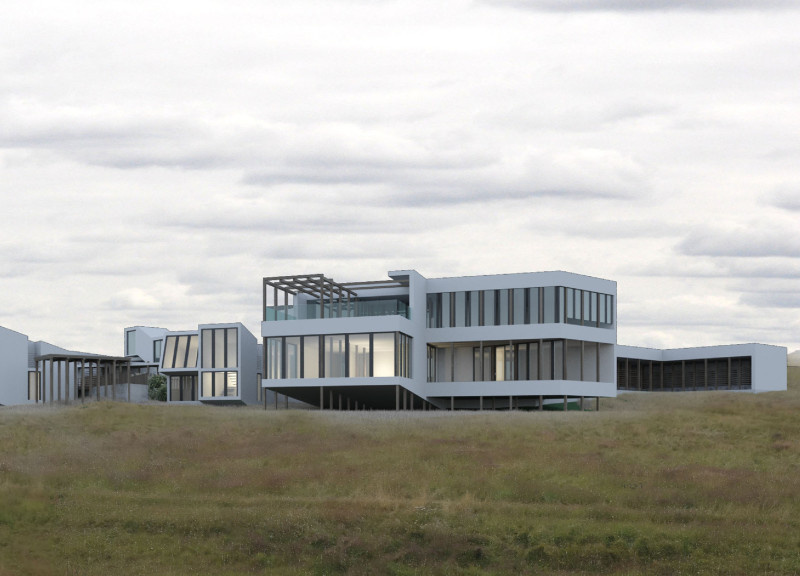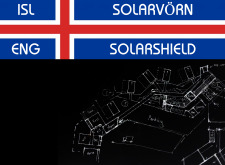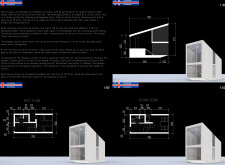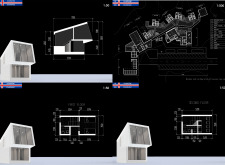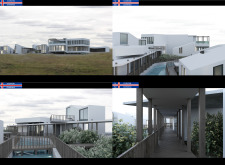5 key facts about this project
### Overview
The Solarvörn (Solar Shield) project is situated in the diverse landscape of Iceland, designed as a series of guest houses that integrate ecological sustainability with cultural relevance. These structures feature an autonomous life support system, enabling mobility across the natural terrain. The project emphasizes a connection between visitors and the surrounding environment, utilizing renewable energy sources, particularly solar panels, to align with current sustainability practices in architecture.
### Spatial Organization and Functionality
The arrangement of buildings across the site demonstrates a deliberate integration with the landscape, optimizing views while minimizing environmental impact. The design encompasses not only individual guest houses but also communal areas, including a dining space, spa facilities, and observation areas for nature engagement. Each guest house is designed with a functional flow between floors, featuring living areas, kitchens, sanitary spaces, and terraces that promote indoor-outdoor interaction.
### Material Selection and Sustainability
A diverse range of materials has been employed in this project, emphasizing both sustainability and aesthetic appeal. Cork serves as a primary structural material due to its lightweight and renewable characteristics, providing effective insulation. Concrete offers durability against Iceland's challenging weather, while large glass panels enhance natural light and create visual continuity with the exterior landscape. Additionally, wood is used in decking and walkways to introduce warmth and contrast to the concrete and glass elements.
The design includes advanced water management systems, allowing for the recycling of pool water for landscaping needs, further reflecting an environmental stewardship commitment. The guest houses are designed for mobility, ensuring adaptability for future requirements, while hybrid energy systems capitalize on solar power alongside lithium-ion storage solutions for efficient energy management.


